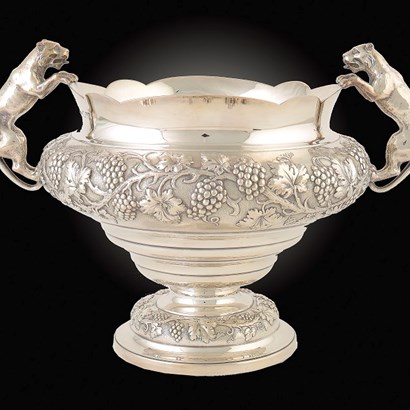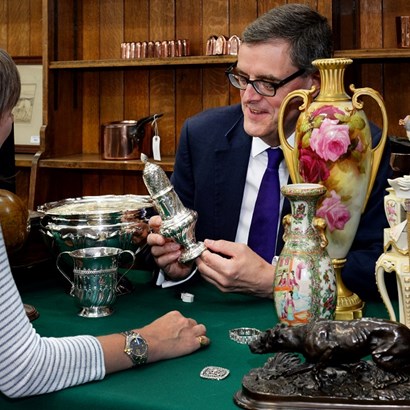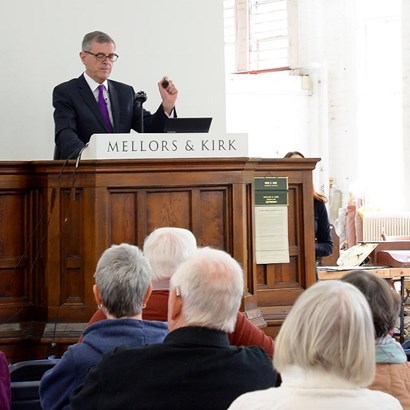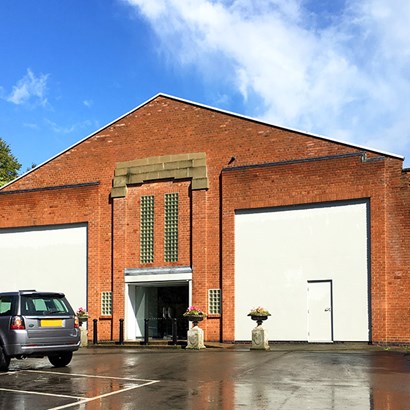Auction Insights
Wedgwood: A Potted History
He united art with industry but Josiah Wedgwood’s life and legacy was underpinned by a concern for others.
Wedgwood’s name, just as Jessie Boot’s and the Cadbury brothers are synonymous with once flourishing family businesses that have a rich heritage. Their names survive as household name brands but are far removed from the ethos of the founding families. Most such great British businesses were founded between 1750 and the late 19th century. Their success was built not just on hard work and innovation but by making products people could both aspire to and afford. The reason they became household names has much to do not only with the quality of their goods – for that’s soon forgotten – but how because of religious principles they behaved towards their employees, suppliers and customers in the days long before trade unions and a host of legislation. It is no coincidence that these three and many other great British businesses were founded by dissenters – Unitarians, Quakers, Methodists and others most of whom were liberal in their politics.
Josiah Wedgwood was a key figure in the Midlands enlightenment in the 18th century but it is worth recording that he was much more than a practical potter and entrepreneur. He was born in the Potteries in 1730 into a long line of working potters. He served an apprenticeship becoming an extremely skilled thrower, but mastered all branches of pottery manufacture. He was also a clever, practical scientist and a tireless experimenter. That quickly began to tell in his pottery and this, combined with a keen artistic sensibility and a brilliantly conceived marketing strategy brought him enormous success. He was a member of the free-thinking Lunar Society of Birmingham, a small group of some of the greatest and most enlightened men of the 18th century and was also elected to the Royal Society for inventing a pyrometer for measuring the high temperatures in pottery kilns. Wedgwood was particularly concerned about social reform in particular opposing slavery. He produced a famous pottery cameo, a medallion of a slave in chains and inscribed “Am I not a man and a brother?” He sent some to his friend Benjamin Franklin in America and gave 500 to Thomas Clarkson, a leading abolitionist, to distribute. No bigger than a postage stamp these now very rare objects are highly prized. I was fortunate to acquire one many years ago and only this week I noticed another one, that belonged to Edinburgh Banker and fellow anti-slavery campaigner Sir William Forbes (1739-1806) is about to be sold at Sotheby’s by his descendants. The estimate is £800-1200.
One of Josiah Wedgwood’s daughters married the son of another friend, Erasmus Darwin (1731-1802) the prodigiously creative poet-physician and inventor, as well fellow abolitionist, who was born at Elston Hall, Nottinghamshire. One of Josiah’s granddaughters married Charles Darwin author of On the Origin of the Species.
A particularly interesting character is his son, Tom Wedgwood who died aged 34. Now largely forgotten who was a close friend of Samuel Taylor Coleridge, providing the poet with the funds that allowed him to devote all his time to poetry and philosophy. Tom Wedgwood also played an important role in the earliest experiments with photography.
When Wedgwood built his famous new factory Etruria in 1769 he celebrated by himself throwing six ‘First Day’ vases to commemorate the opening of the factory, which bore the Latin inscription which in translation reads ‘The Arts of Etruria Reborn’.
In the Victorian period 18th century Wedgwood was collected by some of the most famous and successful men and several women. Felix Joseph, whose great collection is in Nottingham Castle was the subject of last week’s Under the Hammer. Another collector, Prime Minister W E Gladstone described Wedgwood as “The greatest man who ever, in any age or country, applied beauty to the important work of uniting art with industry.” That explains why men such as Joseph believed Wedgwood ware could influence contemporary design.
The superb new Wedgwood Museum in Stoke on Trent is now free from the very real threat of the sale of its collection following the 2009 collapse of Waterford Wedgwood PLC. The public fund raising resulted in a tidal wave of donations great and small. JCB contributed £1000,000 and the Art Fund observed that it showed just how much the public treasures Wedgwod. The Museum has an outstanding collection of Wedgwood pottery and unique archives but for me the most evocative object is Wedgwood’s own huge wooden potter’s wheel, an nothing better speaks of this remarkable man’s legacy.
< Back to Auction Insights



